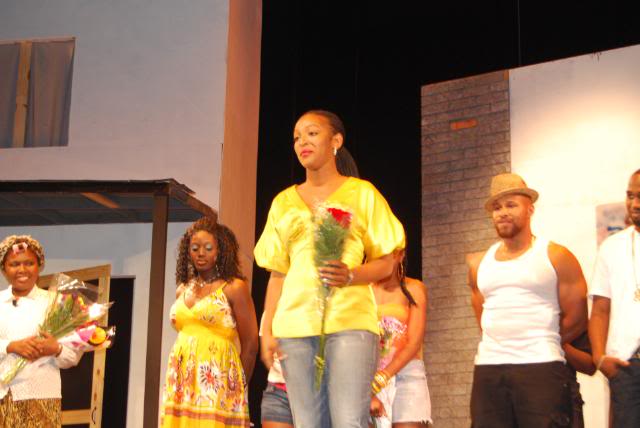 A modern day Romeo and Juliet with many of the social ramifications of the story of Paul Rusesabagina and Rwanda's Hutu-Tutsi war, the stageplay Lil Haiti, carries a powerful story of love and unity amidst a world of illogical prejudice in Miami, Florida.
A modern day Romeo and Juliet with many of the social ramifications of the story of Paul Rusesabagina and Rwanda's Hutu-Tutsi war, the stageplay Lil Haiti, carries a powerful story of love and unity amidst a world of illogical prejudice in Miami, Florida.
Nearly around the same time the vicious acts of genocide were being committed against the tribe of Tutsis in Rwanda in the early '90s, events precipitated by a similar prejudice were being committed against Haitian refugees who immigrated to Miami, Florida.
A new play, shown on Aug. 28 at North Miami High School Auditorium and produced by Jermell Jenkins of BrainSpeed Productions, shares this untold story surrounding the acts of violence and discrimination carried out against Haitians circa the late '80s and early '90s in Miami. These acts were committed by men and women who shared skin color, but were just fortunate enough to be born and bred in the land of the free and the home of the brave.
As the play unfolds, we meet two families who live across the street from one another in Northeast Miami-Dade county, before it was affectionately named Little Haiti. One family comprises a "fresh off the boat" Haitian mother, father and two teenage children. The other family comprises a hard-working Black American widower and his teenage son who represents justice in the

new world.
The two families live at odds mainly because the American father, played by director Yonel Aris, harbors an intense dislike for all Haitian immigrants. He has assaulted his Haitian neighbor several times, yet the reason for his aversion to these islanders runs much deeper than he lets on.
Aris, even though of Haitian heritage himself, is instrumental in setting the aggressive tone the Black Americans feel toward Haitians in the play.
While some scenes seem exaggerated, the hostility in the play rings true as actors masterfully re-enact the critical stares brought on by a Haitian clad in high-water pants and talcum at the neck, the targeting of Haitian students walking home from school, the mockery of a language that an American couldn't and wouldn't try to understand.
Playwright Damien McKnight does a fairly good job at highlighting these cross-cultural struggles while not demonizing all Black Americans. In fact, there is a huge redemptive component as a forbidden friendship and romance, even, begins to burgeon. It is what drives the story to its limits.
Although the cast comprises mostly amateur talent, audiences are still drawn in by the organic acting set before them, the physicality and expert dialect that comes with a play featuring "the other," and the natural chemistry between players - both American and Haitian.
Stand-out performances include the doting Haitian wife played by Haitian actress Peggy Joseph, the nerdy Haitian misfit Pierre played by Haitian actor Mikens Dorcely, Zoe posse leader James played by Antonio Paul and the widower's love interest Eennise played by Leotine Morgan.
leader James played by Antonio Paul and the widower's love interest Eennise played by Leotine Morgan.
All in all, this play - with minor set and writing adaptations - is ready for off-Broadway audiences who thirst for socially-relevant subject matter with all the humor and drama of the chitlin' circuit, yet none of its cheap titillations.
Audiences will feel both renewed for having taken Lil Haiti in as well as they will claim the readiness to be the change they want to see.

